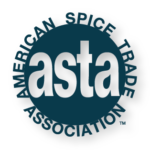State Regulations
This area provides information on critical issues facing the U.S. spice industry at the state level.
All 50 states also have regulatory authority and enforcement mechanisms that impact businesses, including the spice industry. Federal policy often pre-empts state regulations or is aligned in enforcement to keep commerce flowing smoothly. However, there are times when states have more specific requirements or different policies. This section, although not exhaustive, will provide information of interest to the spice industry that may be helpful to your day-to-day business operations if doing business in or selling product in a particular state.
California Proposition 65 and Spices
California Proposition 65 or “Prop 65”, calls for consumer product labeling or warnings in the workplace for substances determined to be carcinogens or reproductive toxins. A small number of California Prop 65-listed substances are relevant to the spice industry. Although there have been very few enforcement actions involving spices in the 30 years that Prop 65 has been in force, information and awareness of the requirements of Prop 65 and the application of exemptions from its warning requirements are helpful in successfully addressing Prop 65 concerns of the spice industry and its customers. This white paper provides information on Prop 65 as well as links to additional resources that may be helpful.
New York Recall Handbook and Lead in Spices
The State of New York has updated its Recall Handbook to provide specific guidelines for spice companies when elevated levels of lead are found. Lead levels over 25 ppm will result in a Class I recall in New York, while levels between 1 ppm and less than 25 ppm will result in a Class II recall.
California Prop 65 Business Resources
California’s Office of Environmental Health Hazard Assessment (OEHHA) created several resources for businesses regarding Prop 65 warning regulations. The information does not help to determine when a warning is required but instead provides guidance for businesses once they have decided to provide a warning.



